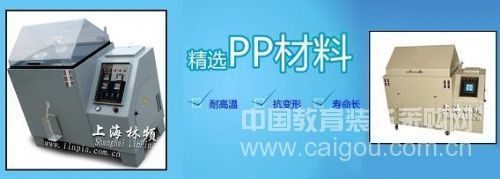A Brief Introduction to the Standard of Salt Dry and Wet Compound Salt Spray Test Chamber
Corrosion of metal materials, regardless of whether they are protected by corrosion or not, will be affected by many environmental factors. The impact procedure depends on the type of metal material and the type of environment. Since it is impossible to design in the laboratory to include all environmental factors that affect corrosion resistance Accelerated corrosion test. Therefore, laboratory tests are used to simulate the impact of several major environmental factors on the corrosion of metal materials. Exposure of metal materials to outdoor weather conditions of acid rain and salt pollution may promote corrosion, as mentioned in the relevant standards The accelerated corrosion test method is to simulate and accelerate the impact of this environment on the corrosion of metal materials. Therefore, in response to this phenomenon, the salt spray test chamber came into being.
The test method of the salt spray test chamber includes the test cycle exposure to acid salt spray, dry conditions and wet conditions. The test method is mainly used for comparative tests. The test results do not represent the final corrosion resistance of this metal under the actual working environment. However, this test method can provide valuable information on the relative corrosion resistance of materials exposed to salt pollution / acid rain environments with similar test conditions.

The standard specifies two accelerated corrosion test methods: Test A and Test B to compare and evaluate the corrosion resistance of metal materials with or without permanent or temporary corrosion protection in outdoor salt pollution / acid rain environments. The standard also specifies The two test methods of the salt spray test chamber include the test cycle exposure to acid salt spray, "dry" and "wet" test conditions, this test and the traditional accelerated corrosion test, such as the neutral salt spray specified in GB / T 10125-1997 Compared with the NSS test, its biggest advantage is that it can better simulate the corrosion that occurs in outdoor salt pollution / acid rain environments. These methods are also very useful for evaluating the appearance corrosion.
Method A is applicable to: metals and their alloys, metal coatings (cathode coatings), anodized coatings, and organic coatings on metal materials.
Method B is applicable to: anode coating on steel plate, anode coating with conversion coating on steel plate.
A Brief Introduction to the Standard of Salt Dry and Wet Compound Salt Spray Test Chamber
Damascus Knife is high-end quality kitchen knife, made from VG10 steel, AUS 10 steel. Damascus kitchen knives are characterized by distinctive patterns of banding and mottling reminiscent of flowing water. Such blades were reputed to be tough, resistant to shattering, and capable of being honed to a sharp, resilient edge.
If you like to purchase a best knife, Damascus knife will be your choice.
Damascus Knife
Damascus Knife,Damascus Steel Knife,Damascus Pocket Knife,Damascus Steel Pocket Knife
Liveon Industrial Co.,Ltd. , https://www.kitchenknifes.de